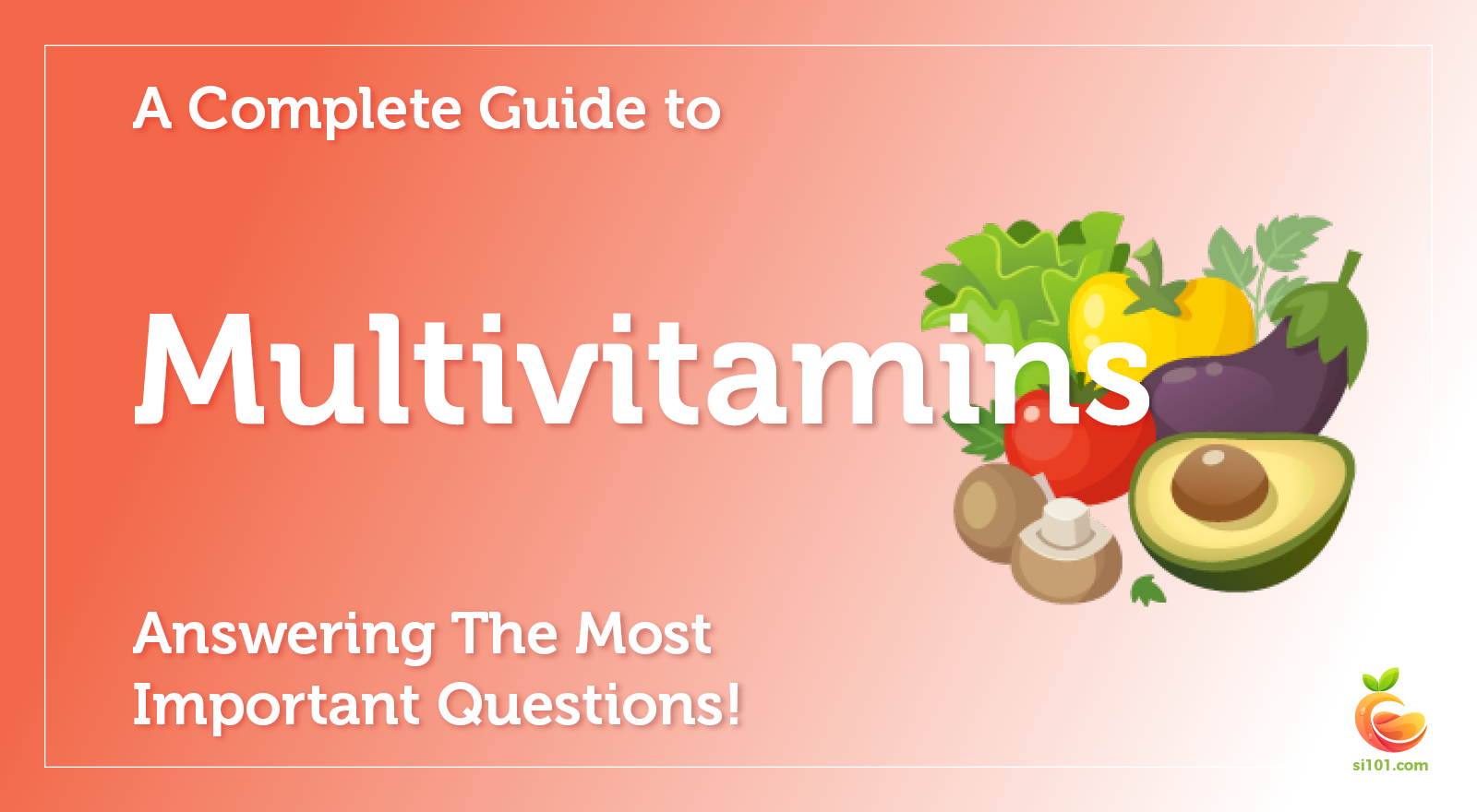What are the health benefits of multivitamins?
Multivitamins are a great way to ensure that you are getting all the essential vitamins and minerals your body needs. They can provide many health benefits, from improving overall health to helping prevent certain diseases. Here we will look at some of the most common health benefits of multivitamins for everyman audience.
Firstly, multivitamins can help improve your overall health by providing essential nutrients that may be lacking in your diet. Many people don’t get enough vitamins and minerals from their regular diets, so taking a multivitamin can help fill in those gaps. This can lead to improved energy levels, better digestion, stronger bones and teeth, and healthier skin and hair.
Secondly, taking a daily multivitamin can also help reduce the risk of certain diseases such as heart disease or stroke. Studies have shown that people who take multivitamins on a regular basis have lower rates of these conditions than those who do not take them regularly. Multivitamins contain antioxidants which help protect against free radicals that damage cells in our bodies leading to disease development.
Finally, multivitamins may also help boost your immune system by providing essential vitamins and minerals needed for proper functioning of the immune system. This helps keep you healthy by fighting off illnesses more quickly and efficiently than if you weren’t taking any supplements at all. In addition to this, some studies suggest that taking a daily multivitamin may even reduce the risk of developing certain types of cancer over time as well!
In conclusion, there are many potential health benefits associated with taking a daily multivitamin supplement for everyman audience . From improving overall health to reducing the risk of certain diseases like heart disease or stroke – it is clear why so many people choose to take one each day!
What is the recommended dosage of multivitamins?
Multivitamins are a great way to supplement your daily diet and ensure that you get all the essential vitamins and minerals your body needs. But it’s important to understand what the recommended dosage of multivitamins is, so you can make sure you’re taking the right amount for your health.
For everyman audience, the general recommendation is to take one multivitamin tablet per day with food. This should provide enough of each vitamin and mineral to meet your daily requirements without exceeding them. However, if you have specific health conditions or dietary restrictions, then it may be necessary to adjust this dosage accordingly. For example, pregnant women may need additional iron in their diet and so they should consult their doctor about taking an extra multivitamin tablet per day.
It’s also important to remember that while multivitamins can help fill any nutritional gaps in your diet, they cannot replace healthy eating habits altogether. Eating a balanced diet full of fresh fruits and vegetables is still the best way to ensure that you get all the nutrients your body needs on a daily basis. So even if you do take a multivitamin every day, make sure you’re also eating plenty of nutritious foods as well!
What are the functions of multivitamins in the body?
Multivitamins, body, health
Multivitamins are an important part of a healthy lifestyle. They provide essential vitamins and minerals that the body needs to function properly. Multivitamins can help to boost energy levels, improve immunity, and reduce the risk of certain diseases.
The most important function of multivitamins is to fill in any nutritional gaps that may exist in a person’s diet. For example, if someone does not get enough vitamin C from their daily food intake, they can take a multivitamin to make up for it. Multivitamins also help with overall health by providing essential nutrients like calcium and iron which are needed for strong bones and muscles.
Finally, multivitamins can help people maintain optimal health by providing antioxidants which protect cells from damage caused by free radicals. Free radicals are molecules that cause oxidative stress in the body which can lead to various illnesses such as cancer or heart disease. Taking a multivitamin on a regular basis helps keep these free radicals at bay so that you can stay healthy and active for longer periods of time.
In conclusion, taking multivitamins is an easy way for everyone to ensure they get all the necessary vitamins and minerals their bodies need for optimal health. By filling in any nutritional gaps left by your diet, you will be able to enjoy improved energy levels and better immunity while reducing your risk of certain diseases at the same time!
How should multivitamins be taken?
Multivitamins are a great way to supplement your diet and get the vitamins and minerals you need. However, it is important to know how to take them correctly in order for them to be effective. Here are some tips on how to properly take multivitamins
First, make sure that you read the label carefully before taking any multivitamin. This will help ensure that you are taking the correct dosage for your age and gender. It is also important to note that many multivitamins contain different ingredients so make sure you understand what each one does before taking it.
Second, it is best to take multivitamins with food or after eating a meal. This helps ensure that your body can absorb all of the nutrients from the vitamin and maximize its effectiveness. Additionally, try not to take more than one multivitamin at a time as this can lead to an overdose of certain vitamins or minerals which could have adverse effects on your health.
Finally, remember that while multivitamins can be beneficial they should not replace a healthy diet full of fruits, vegetables, whole grains and lean proteins. Multivitamins should only be taken as part of an overall balanced lifestyle including regular exercise and stress management techniques in order for them to truly work their magic!
What are potential risks of consuming too much multivitamins?
Multivitamins, Potential Risks
Consuming too much multivitamins can have potential risks for everyman. Multivitamins are a combination of vitamins and minerals that are essential for the body to function properly. While taking multivitamins is beneficial in helping to fill nutritional gaps in one’s diet, it is important to be aware of the potential risks associated with consuming too much.
Excessive consumption of multivitamins can lead to an overdose of certain vitamins and minerals, which can cause serious health problems. For example, an overdose of vitamin A can cause liver damage and birth defects if taken during pregnancy. Additionally, excessive intake of iron or calcium may lead to constipation or other gastrointestinal issues. It is also possible that taking too many multivitamins could interfere with medications being taken for other medical conditions such as high blood pressure or diabetes.
It is important to speak with your doctor before beginning any new supplement regimen as they will be able to provide advice on what dosage would be best for you based on your individual needs and medical history. They may also recommend alternative sources such as food-based supplements instead of relying solely on multivitamin pills. By understanding the potential risks associated with consuming too much multivitamin, you can make sure that you are getting all the nutrients you need without putting yourself at risk for any adverse effects.
What are natural sources for multivitamins?
Natural Sources, Multivitamins
When it comes to multivitamins, many people turn to supplements for their daily dose. However, there are plenty of natural sources that can provide the same benefits. Eating a balanced diet is the best way to get all the vitamins and minerals you need. Here are some natural sources for multivitamins that everyone should be aware of.
First, fruits and vegetables are excellent sources of essential vitamins and minerals. Eating a variety of colorful produce can help ensure that you’re getting enough of each nutrient your body needs. Leafy greens like spinach and kale contain high levels of Vitamin A and C, while oranges have plenty of Vitamin C as well as potassium. Berries such as blueberries or strawberries are also great sources for antioxidants which help protect cells from damage caused by free radicals in the environment.
Another great source for multivitamins is nuts and seeds. Almonds are an excellent source of Vitamin E, while walnuts contain Omega-3 fatty acids which help reduce inflammation in the body. Sunflower seeds have plenty of magnesium which helps regulate blood pressure levels while pumpkin seeds offer zinc which supports immune health. Adding these into your diet can give you an extra boost when it comes to getting all the nutrients you need on a daily basis.
Overall, eating a balanced diet with plenty of fruits and vegetables along with nuts and seeds is one way to get your daily dose of multivitamins without having to rely on supplements or other artificial sources. Everyone should make sure they’re getting enough vitamins and minerals from natural food sources so they can stay healthy throughout their lives!


